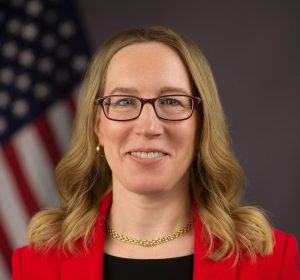The fintech market tends to be cyclical, with companies benefiting from surges in consumer spending and borrowing when people are feeling prosperous, but suffering a bit when lean times come along. But that natural volatility can obscure the bigger picture, which is that the fintech space is growing fast. According to a report from Boston Consulting Group and QED Investors, it could be worth $1.5 trillion by 2030 — up from $245 billion in 2021.
The massiveness of that opportunity isn’t lost on some companies. The fintech space is becoming increasingly competitive, but PayPal (NASDAQ: PYPL) continues to succeed regardless, and could be a long-term winner for investors. Here’s why it may be worth putting $1,000 into the stock right now.
There is no shortage of companies vying for top spots in the fintech space, but PayPal’s early-mover advantages continue to benefit it. Consider that in the third quarter, its total payment volume — the total amount of money moved using its various payment platforms — was $442 billion, an increase of 9% from the prior-year period.
Better yet, the popularity of PayPal’s payment platforms continues to grow. The company has 432 million active accounts right now and the average number of payment transactions per active account rose 9% in the quarter to more than 61. A ton of people are using PayPal’s tools, and the frequency with which they’re using them is increasing.
One area of growth over the past few years has been the popular person-to-person payment app, Venmo. Just five years ago, Venmo had about 52 million users; now, it has an estimated 88 million. With all of its payment platforms, PayPal commands 45% of the global online payment processing market, far outpacing the 17% of the second-largest player, Stripe.
One area where management especially wants to see more growth is in payment checkouts. “We are particularly focused on small and medium businesses and mobile, both critically important areas for us to improve our positioning,” CFO Jamie Miller said on the third-quarter earnings call.
Investors will like that the company is profitable, with a non-GAAP operating margin of 18.8% in the most recent quarter and earnings of $1.20 per share, a 22% increase from the year-ago quarter. PayPal also had $1.4 billion in free cash flow in the third quarter, and ended it with $16.2 billion in cash and cash equivalents on its books.
That solid financial foundation bolsters its position even as smaller rivals try to cut into its lead. With its current growth in active accounts and transactions, PayPal remains formidable.


